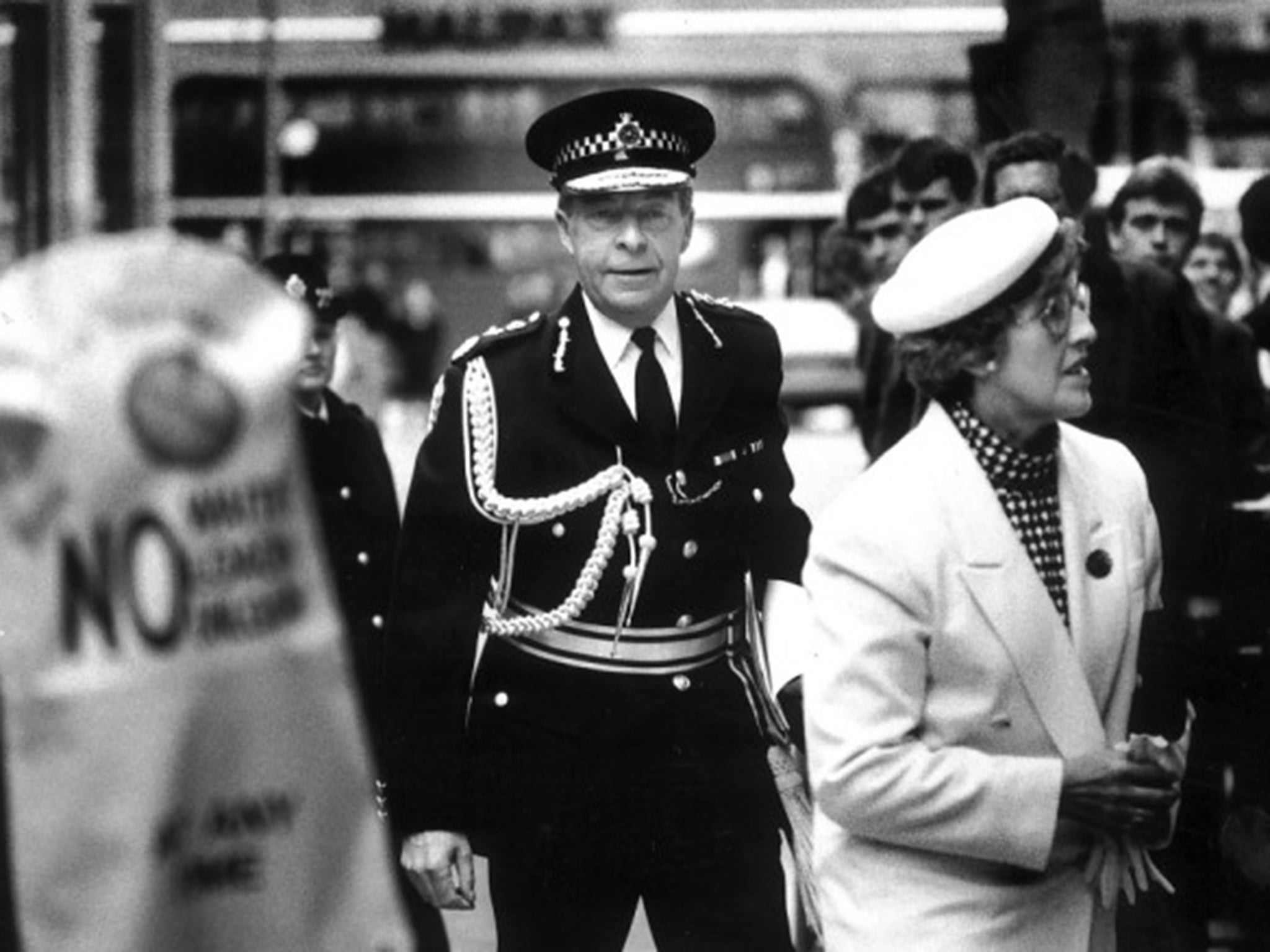Lord Imbert: Metropolitan Police Commissioner who helped modernise and bring public scrutiny to the force
A career informed by national security concerns did not distract him from advocating community initiatives and inviting introspection to improve policing

Peter Imbert came to national attention in the 1975 Balcombe Street siege when a car chase in central London resulted in four members of the IRA holding two hostages for several days. The terrorists wanted to take the man and woman whose flat they had ended up with to Ireland but Scotland Yard refused. Imbert was chief negotiator.
The son of a farmer, Lord Imbert was educated at a grammar school in Folkestone. After National Service, in the RAF, and he joined the Metropolitan Police in 1953. For the first three years of his service he was stationed at Bow Street, before joining CID and, soon after, Special Branch. This gave him a grounding the intelligence and anti-terrorism which informed his career.
In 1973 Imbert had been was appointed Deputy Operational Head of the Met’s Anti-Terrorist Squad.
During the six-day siege Peter Imbert’s shorthand skills were put to good use, and the media, which desperately sought a terrorist-buster, dubbed him “Mr Cool” – the urbane, slightly anonymous figure was a very British police hero.
Imbert’s career accelerated in the late 1970s, taking him from Chief Superintendent to Chief Constable in only four years. After three years as Assistant and then Deputy Chief Constable in Surrey, he became in 1979 the country’s youngest chief officer, at the age of 46, with the Thames Valley force.
Unusually for such a senior officer he was generally popular with rank and file. He proved to be a skilful and even slightly eccentric communicator.
He once diverted his chauffeur-driven Jaguar to help apprehend a suspect and eventually cornered the man in a back garden. The uniformed sergeant who arrived on the scene inquired as to the identity of the civilian-clad Imbert, who in handing the prisoner over replied that he was ‘‘just a passer-by’’.
Controversially in 1981 he allowed the BBC to film a documentary series on his force. The episode that continues to arouse passions among police and non-police alike featured the heavy-handed treatment of a woman claiming to have been raped. The storm of protest that followed led to a reappraisal of police attitudes and procedures that fully vindicated the Chief Constable’s bravery in allowing cameras to intrude into police work.
Imbert’s spirit of openness, though, was bitterly resented within certain police circles, leaving him to explain: ‘‘I think the public are not only entitled, but almost have a duty, to know the difficulties of policing.’’ It was a welcome view at Scotland Yard.
Avuncular and forthright, Imbert joined the Met in 1985 as Deputy Commissioner and proceeded to put a human face on the organisation that it sorely lacked, not least among his colleagues.
By the time he became Commissioner in 1987, the Met had gained a slicker image thanks to his innate talent for PR.
Imbert and his team had an awesome series of serious problems to deal with, all carried out in the full glare of national and international publicity, much of which emanated from the perceived role of Met officers during the miners’ strike, which lasted from 1984 to 1985.
His tenure survived the Broadwater Farm riots, the Wapping dispute, the poll-tax riot, and the failure of Neighbourhood Watch scheme. Yet he emerged unscathed by any of these problems.
Imbert avoided the aloof abrasiveness of his immediate predecessor, Sir Kenneth Newman, by choosing his words and the moment to use them with consummate skill.
Imbert was knighted in 1988. In 1990 he launched his chief legacy, the Plus programme. Whether one sees this as an attempt to improve the service or as an effort to smother criticisms concerning the Met’s lack of accountability is open to debate, what is certain is that no other senior officer has ever implemented such a far-reaching programme of self-assessment. The seminars and in-depth reviews of the Plus programme prompted other forces to face up to their inadequacies and the resulting process of introspection has continued to this day.
His effect on policing in Britain was complex. He called out the need for an FBI-style national detective agency and also stressed the value of community initiatives. He supported corporal punishment for hooligans, and lent his full weight to specialised units to deal with domestic violence. Lord Imbert will be remembered as a man who opened up police work to the public gaze while retaining his focus on national security. His advocacy of the merits of self-criticism and introspection will be felt for a long time.
Peter (Lord) Imbert, born 27 April 1933, died 13 November 2017
Subscribe to Independent Premium to bookmark this article
Want to bookmark your favourite articles and stories to read or reference later? Start your Independent Premium subscription today.

Join our commenting forum
Join thought-provoking conversations, follow other Independent readers and see their replies